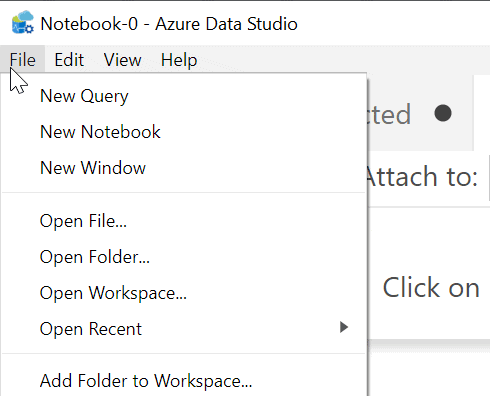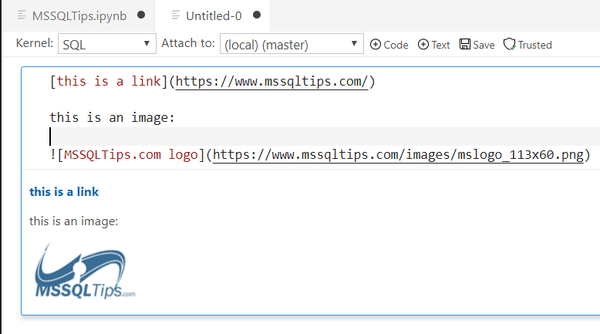

Technically, you could use still use the built-in notebooks as Python, Scala and. If you are using SQL Pools or serverless SQL on demand then you are out of luck. So, it's great that Azure Synapse Studio has built-in notebooks, but as it stands these are geared towards Spark workloads. Azure Data Studio Notebooks and SQL on demand NET Interactive, to notebooks in Comos DB, Azure Notebooks (which, unfortunately shuts down on ), Azure Machine Learning, Azure Databricks and even Kusto (KQL) notebooks. Results like this are why I've been such a huge advocate for notebooks across the Microsoft ecosystem from. The end result was that we re-engineered and optimized the existing process and reduced it from 12 weeks to just under 45 minutes. Everyone was bought in, fully engaged, and the collaboration was both highly informative and extremely productive.
#AZURE DATA STUDIO NOTEBOOK CODE#
Because it's highly contextual everyone (regardless of technical ability) could understand what we were trying to achieve and how a snippet of code related to the step in the process. Through the notebook experience, we could pull together all the relevent documentation, diagrams, business rules, regulatory requirements, aims and hypothesis from a business perspective, and start to experiment via code. We had an entirely cross functional team that included the CTO, a pension data expert (who ran the onboarding process), a C# developer, a data expert, and me (I'll leave you to guess what value I brought to the team!).

We took a 25 year old business process (onboarding pension data) that took on average 12 weeks to complete. Take the following photo this was from a data hack we ran for one of our customers last year.

These have, in my opinion, all been baby steps towards the value that notebooks can deliver, especially in data exploration and experimentation. Sprint visions, user stories, personas, value-stream maps, and gherkin based executable specifications have all been steps along the way to help synchronise and consolidate the aims and knowledge of the busienss and delivery team. The notion of a cross-functional team has been a core ambition of Agile development, and there have been a number of occasions in my career where I've paired with domain experts to translate real world knowlege into a system. By Howard van Rooijen Co-Founder 30th September 2020Īs much as consumption based cloud analytics has already lowered the barrier to entry for organisations to take advantage of big data, the addition of notebook-based development significantly delivers decreased time to (business) value, and eliminates waste by improving collaboration and productivity.


 0 kommentar(er)
0 kommentar(er)
